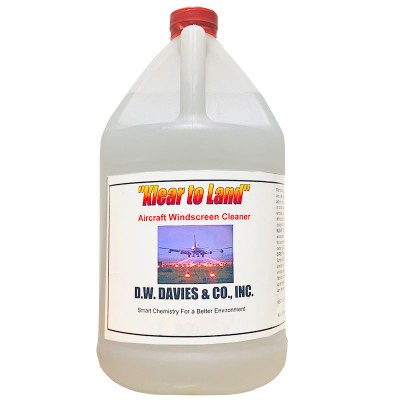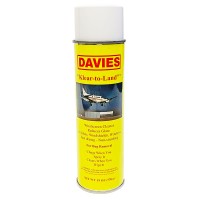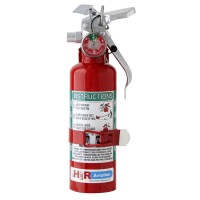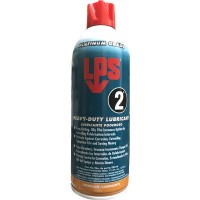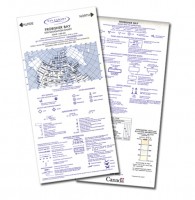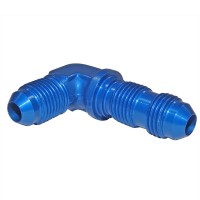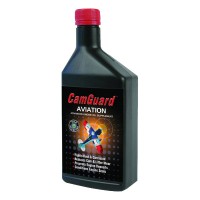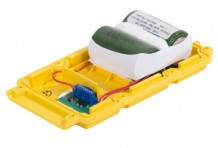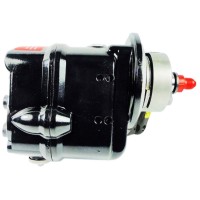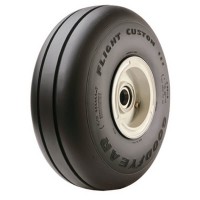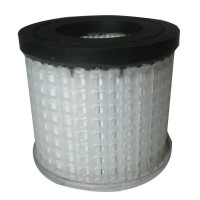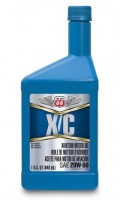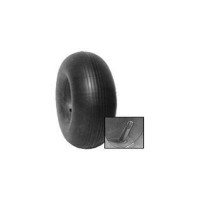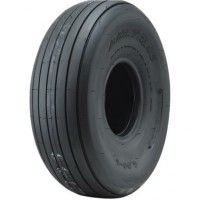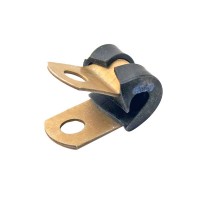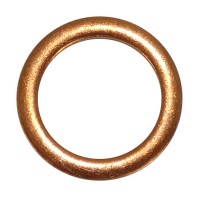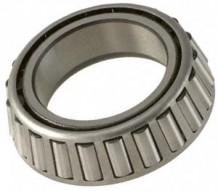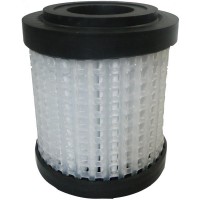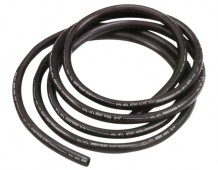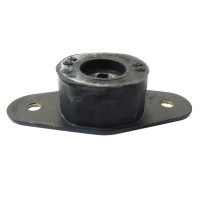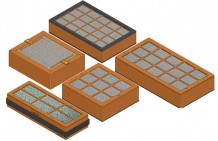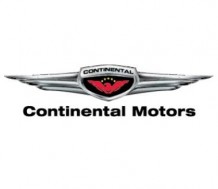Aircraft Spruce Canada
Brantford, ON Canada
Corona, CA | Peachtree City, GA
Chicago, IL | Wasilla, AK
Klear To Land Liquid 1 Gallon
MFR Model# KLEAR
Overview
|
Maintaining your aircraft windows is not difficult, but there are a few considerations to keep in mind. Although acrylic plastic is considerably stronger than glass, its face is not as hard, so you must use care when cleaning your windows to prevent scratching. Never rub the surface with a dry cloth. Excessive rubbing builds up a static charge on the Plexiglas that can attract dust. Never rub surface with dry cloth and never use any soap or glass cleaner that is not made to aircraft specs - - - it will cause scratching and crazing of windscreen. Never use aircraft deicing fluid on windscreens, as it will cause excessive crazing. Always be sure to use a cleaner made for acrylic plastic, such as Davies “KLEAR-TO-LAND”. Spray on “KLEAR-TO-LAND” liberally; rub well with clean dry cloth. Minor scratches will be greatly improved over a period of time. “KLEAR-TO-LAND” leaves an invisible film giving windscreen much greater slip as well as being an ice deterrent in winter flying. Due to the ‘slip value’ of “KLEAR-TO-LAND”, pilots spray all leading edges of wings to obtain more slip and be a great ice deterrent on all leading edges. “KLEAR-TO-LAND” is formulated primarily for aircraft windscreens – however, it can be and is used extensively for aircraft interior cleaning, including upholstery cleaning, fabric, plastic and leather. When used as an upholstery cleaner, it is recommended that “KLEAR-TO-LAND” be sprayed on surface and allowed to remain on surface for approximately two minutes allowing the chemical action to penetrate and break up soil – after two minutes of chemical action, simply wipe surface clean. For cleaning windscreens and windows, it is NOT necessary to allow any time for chemical action – recommend to spray and wipe immediately after spraying windscreens since there is no porous surface that needs to be penetrated on windscreens. |
Features
- Reduces glare
- Non-streaking
- Removes bugs
- Anti-fog
- Anti-static
- Removes greasy film
- Repairs scratches
- Clings when you spray it
- Cleans when you wipe it
- No dust clinging residue
Specifications
- MIL P2425 Sheet Acrylic Plastic
- MIL P25690A Stretched Modified Acrylic Sheet
- CSD-1 Aircraft Transparencies and Sandwich Corrosion
- BMS-8-135
- Boeing Lexan 9600
Reviews
I note that the Features say it removes bugs. I am not so certain about remove but I would say the bugs dont stick, or maybe a more slippery surface means the air stream somehow diverts the bugs in the first place. It is probably do not stick as I note that while one can see a bug residue, there is less bug to clean off from either the leading edges of the windscreen. There also seem to be less bugs i total but unless one was to coat only one wing or half the windscreen, it is hard to say. If there is a problem, it is shipping. The liquid has to come via travel by means other than Canada Post. As such, there should be some mention about ground shipping required. I purchased the gallon size as that seemed less of a shipping fuss than the aerosol can. With the gallons size, I am thinking of painting the whole airplane with it. What I am now doing is coating the nose bowl and gear legs to reduce bug buildup.
Q&A
Please note, Aircraft Spruce Canada's personnel are not certified aircraft mechanics and can only provide general support and ideas, which should not be relied upon or implemented in lieu of consulting an A&P or other qualified technician. Aircraft Spruce Canada assumes no responsibility or liability for any issue or problem which may arise from any repair, modification or other work done from this knowledge base. Any product eligibility information provided here is based on general application guides and we recommend always referring to your specific aircraft parts manual, the parts manufacturer or consulting with a qualified mechanic.

 Aircraft Spruce Canada
Aircraft Spruce Canada
